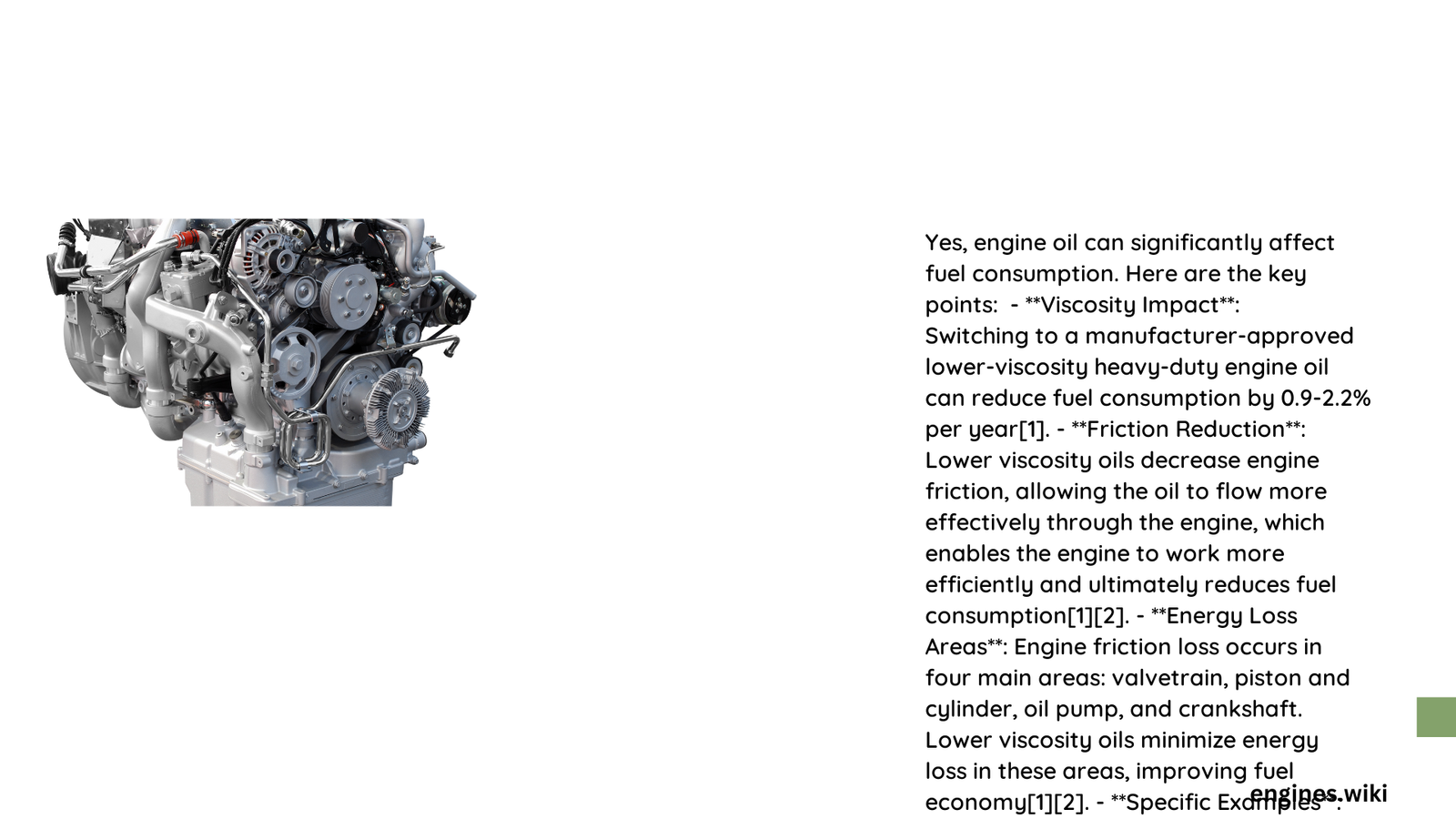Engine oil plays a critical role in determining a vehicle’s fuel consumption. By influencing internal friction, lubrication efficiency, and mechanical performance, the right engine oil can significantly reduce fuel expenditure. Modern automotive technologies and advanced lubricant formulations offer drivers strategic opportunities to optimize their vehicle’s energy efficiency through intelligent oil selection and maintenance practices.
How Does Engine Oil Impact Vehicle Fuel Efficiency?
Engine oil’s relationship with fuel consumption is complex and multifaceted. Different factors contribute to its influence on overall vehicle performance and energy utilization.
What Determines Oil’s Effect on Fuel Economy?
Several key parameters determine how engine oil can affect fuel consumption:
- Viscosity Characteristics
- Lower viscosity oils reduce internal friction
- Minimizes energy required for oil circulation
-
Enables smoother mechanical interactions
-
Lubrication Quality
- Reduces metal-to-metal contact
- Decreases mechanical resistance
- Supports optimal engine performance
Can Different Oil Types Improve Fuel Consumption?
| Oil Type | Potential Fuel Savings | Key Characteristics |
|---|---|---|
| Synthetic | 1-2% | Lower friction |
| Semi-Synthetic | 0.5-1% | Balanced performance |
| Conventional | Baseline | Standard protection |
What Specific Mechanisms Influence Fuel Efficiency?
Engine oil affects fuel consumption through multiple interconnected mechanisms:
- Reduced Friction: Lower viscosity oils create minimal resistance between moving parts
- Enhanced Thermal Stability: Maintains consistent performance across temperature ranges
- Improved Mechanical Efficiency: Minimizes energy loss through internal engine processes
How Much Can Proper Oil Selection Save?
Real-world data demonstrates tangible fuel economy improvements:
- Switching from 15W-40 to 10W-30 can yield 0.5-1.5% fuel savings
- Synthetic oils potentially provide 1-2% additional fuel efficiency
- For a vehicle averaging 40 mpg, this translates to approximately 0.4-0.8 mpg improvement
What Factors Should Drivers Consider?
Critical considerations for optimizing fuel consumption through engine oil selection:
- Vehicle manufacturer recommendations
- Driving conditions and environment
- Vehicle age and mechanical condition
- Recommended oil change intervals
Are Modern Oils More Fuel-Efficient?
Contemporary engine oils, particularly API CK-4 and FA-4 classifications, are specifically engineered for:
- Lower viscosity
- Reduced friction
- Enhanced fuel economy
- Improved engine protection
Practical Recommendations for Drivers
- Consult vehicle manual for precise oil specifications
- Choose oils matching manufacturer recommendations
- Maintain regular oil change schedules
- Consider synthetic oils for optimal performance
- Monitor vehicle performance after oil changes
Conclusion

Understanding how engine oil can affect fuel consumption empowers drivers to make informed maintenance decisions. By selecting appropriate lubricants and maintaining consistent service intervals, significant fuel efficiency gains are achievable.
